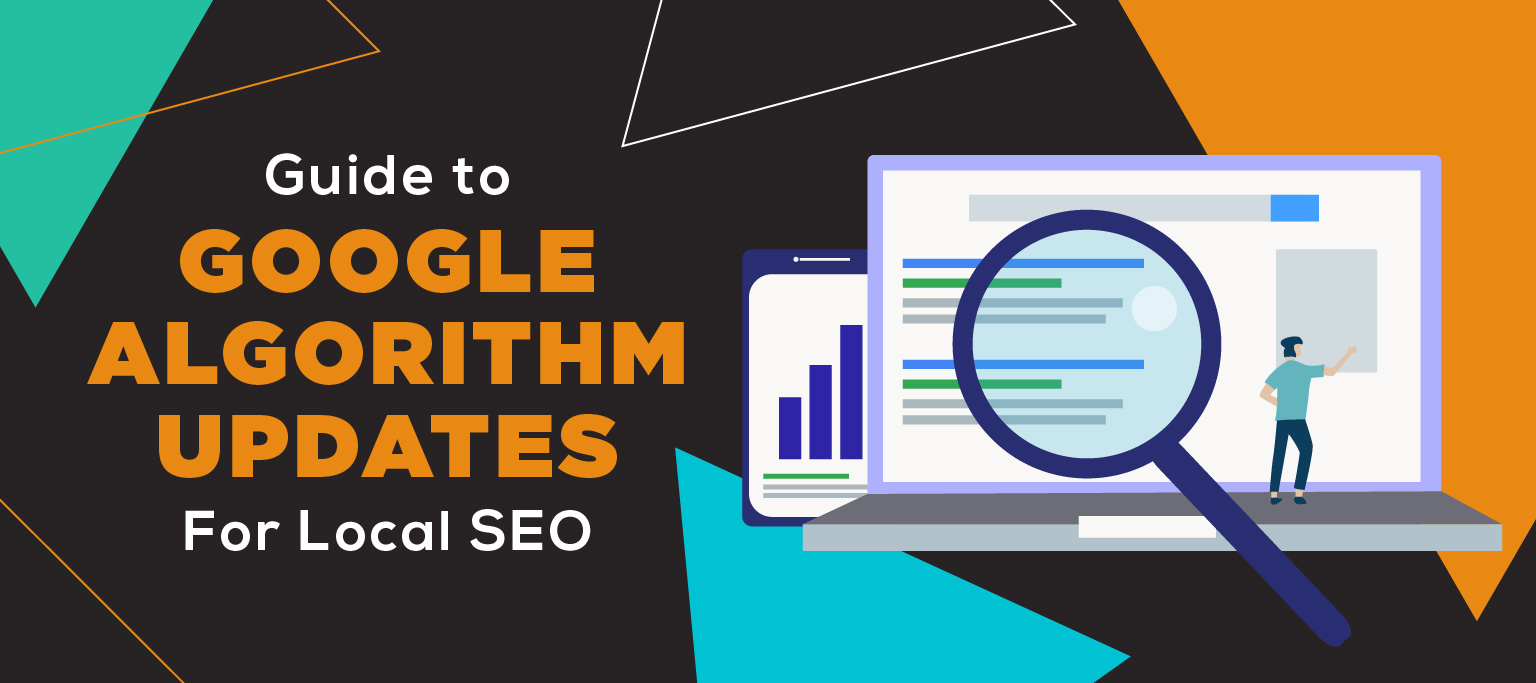Comprehending the Ramifications of Google's Algorithm Updates on SEO Rankings and strategies
In the ever-evolving landscape of seo (SEARCH ENGINE OPTIMIZATION), the effects of Google's algorithm updates have become a centerpiece for online marketers and companies aiming to keep or improve their on the internet visibility (Google’s Algorithm Updates). As Google proceeds to improve its algorithms to provide users with the most appropriate and high-quality search results page, understanding how these updates influence search engine optimization methods and positions is paramount. From the subtle shifts in keyword approaches to the a lot more pronounced focus on individual experience, the interplay in between algorithm updates and search engine optimization practices introduces a complicated internet of considerations that demand continuous vigilance and flexibility
Evolution of Google's Formula

The Panda update, released in 2011, targeted low-quality content and penalized sites with replicate, slim, or unnecessary material. Penguin, released a year later, attended to web link spam by decreasing the value of manipulative web links. Hummingbird, introduced in 2013, noted a change in the direction of semantic search, understanding the context and intent behind individual questions instead than just matching keywords.
These updates required internet site owners and SEO experts to focus on customer experience, quality material, and all-natural web link structure strategies to improve their rankings in Google's search engine result. The development of Google's formula emphasizes the internet search engine's commitment to providing pertinent and beneficial web content to users while penalizing tactics aimed solely at gaming the system.
Effect On Key Phrase Approach
With the advancement of Google's formula in the direction of focusing on individual experience and material significance, the Effect on Keyword phrase Technique has become increasingly important for site owners and SEO specialists looking for to line up with these online search engine updates. Keyword phrases are no longer nearly matching search terms yet recognizing customer intent and providing important content. Google's updates, such as BERT and RankBrain, concentrate on all-natural language processing and context, making keyword approach extra advanced.

Furthermore, with Google's emphasis on semantic search and user-focused material, key phrase padding is no longer effective and can even harm rankings. Instead, incorporating keyword phrases normally right into top notch, pertinent web content is vital. By understanding the impact of Google's algorithm updates on keyword strategy, website owners can enhance their search engine optimization initiatives and boost their exposure in search results page.
Modifications in Content Optimization
As the landscape of search engine optimization remains to advance, website owners and SEO professionals are observing substantial changes in material optimization approaches. Following Google's algorithm updates, there has been an expanding focus on producing premium, relevant, and reliable content that offers worth to individuals. This implies that simply packing key phrases into articles is no more efficient; instead, web content should be well-written, engaging, and customized to meet the demands of the target market.
Moreover, there is a greater focus on user experience and satisfaction, with search engines satisfying internet sites that offer a seamless surfing experience and important details. As a result, content optimization now includes not only including appropriate keywords naturally but likewise structuring material in a method that is simple to check out and browse.
Significance of Individual Experience
Enhancing user experience on a web site is paramount in modern SEO practices, acting as an important aspect in figuring out a website's exposure and success in online search engine rankings. User experience encompasses various components such as website rate, mobile-friendliness, user-friendly navigation, and engaging web content (Google’s Algorithm Updates). Google's formulas increasingly prioritize sites that provide a seamless and gratifying user experience, as it straight associates with user satisfaction and retention
A favorable user experience not only boosts a website's SEO efficiency however also adds to greater conversion rates and consumer loyalty. Websites that are very easy to navigate, visually appealing, and give useful content are most likely to draw in and keep site visitors. On the other hand, websites with inadequate user experience metrics might experience high bounce prices and reduced dwell times, signifying to look engines that the content might not be interesting or appropriate for individuals.
For that reason, spending in optimizing user experience is essential for keeping an one-upmanship in the ever-evolving electronic landscape. By prioritizing user-centric layout and capability, websites can improve their internet search engine positions and ultimately drive even more natural traffic and conversions.
Strategies for Future Adjustment
Relocating ahead in the swiftly developing landscape of search engine optimization, it is crucial for Click Here businesses to embrace innovative approaches for future adjustment. One essential strategy is to concentrate on producing top notch, relevant content that supplies value to individuals. This material ought to be maximized for key words that line up with individual intent and need to be routinely updated to stay present and affordable.
In addition, businesses must focus on mobile optimization to deal with the increasing number of users accessing the internet through mobile gadgets. Making sure that web sites lots promptly, are very easy to browse, and give a smooth customer experience on smart phones can aid boost search positions and customer contentment.
In addition, leveraging information analytics and individual habits insights can help businesses understand their target market far better and customize their search engine optimization methods appropriately. By keeping track of essential performance indications and readjusting methods based on data-driven insights, organizations can remain ahead of the curve and adjust to the ever-changing search engine optimization landscape. Embracing arising technologies, such as voice search optimization and fabricated intelligence, can additionally be useful for future-proofing SEO techniques.
Conclusion

With the development of Google's algorithm towards prioritizing customer experience and web content significance, the Effect on Keyword phrase Technique has become significantly critical for internet site owners and SEO specialists looking for to line up with these search engine updates. Google’s Algorithm Updates. Key words are no longer simply about matching search terms but recognizing individual intent and delivering beneficial web content. Google's algorithms significantly focus on sites that supply a smooth and rewarding user experience, as it straight correlates with customer fulfillment and retention
In contrast, web sites with poor customer experience metrics may endure from high bounce rates and reduced dwell times, indicating to look engines that the material might not be engaging or see pertinent for users.
The advancement of the algorithm has actually changed focus towards customer experience and high quality web content, impacting keyword approach and content optimization.